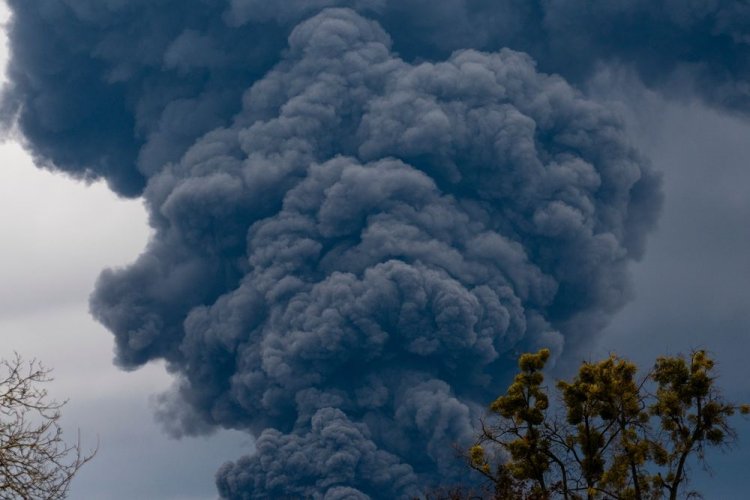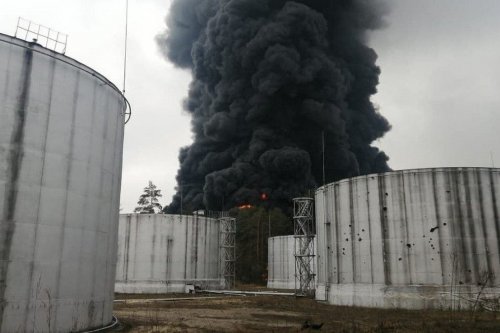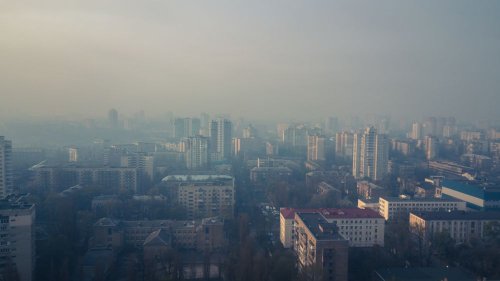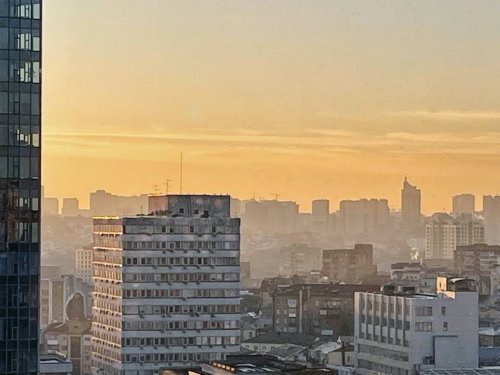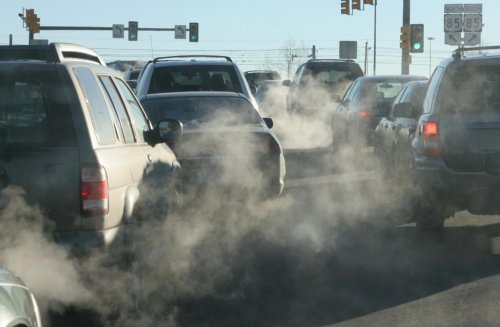Since the beginning of the full-scale environmental invasion, Ukraine has experienced 257 cases of ecocide, which affects food security and has economic consequences for all countries and threatens the world's environmental security and common future.
This is the first international conflict in the last 20 years with such significant and irreparable damage to the environment, the head of the Ministry of Environment wrote in his blog on Ukrainian Pravda Ruslan Strilets.
He explained that any military conflict is not local in nature when it comes to the environment, because ecosystems cannot be divided by conventional boundaries on the map. If the natural balance in one geolocation is destroyed, it will definitely be felt by another.
The war has already killed dolphins off the coasts of Turkey and Bulgaria, but the consequences are much deeper.
From the first days of the invasion, experts from the Ministry of Environment recorded all the damage to nature, including the detonation of fuel and lubricants warehouses, oil storage facilities with corresponding consequences for the environment, air strikes on enterprises using hazardous chemicals in production, damage and destruction of sewage treatment plants and sewage. , as well as damage to soil, burning forests - especially in nature reserves.
Strilets noted that the destruction of the environment in Ukraine threatens the destruction of 2.5 million hectares of Europe's environmental network, namely 160 sites Emerald Network (territories of existence of species and habitats protected at the European level) and 17 Ramsar sites with an area of 627.3 thousand hectares (wetlands of international importance).
"In general, 20% of the area of all protected areas of Ukraine remains in danger from Russia's actions," the minister wrote.
Loss of European biodiversity
Thousands of species of plants listed in the Red Book of Ukraine and protected by law are dying from enemy equipment, and animals are either dying or trying to escape from hot spots.
"Russia is fighting in protected areas of international and European importance, which destroys the habitats of rare and endemic species and habitats. This can change the behavior of birds, including their migration,” - Strilets explained.
He noted that until 2015, Kryva Kosa in the Donetsk region was the largest Red Book colony in Europe Caspian martinis, where three thousand pairs nested. However, when russian troops began to use the Curved Spit to land, all the bird diversity disappeared.
Ukraine's deforestation will also affect the world's food security
The eastern and southern regions of Ukraine, where hostilities are currently taking place, are characterized by low forest cover, which performs protective functions. Their destruction and damage will affect the climate of these regions and can lead to significant erosion processes. In particular, in the south of Ukraine, wind erosion and desertification can have consequences, which will significantly affect agriculture.
"In total, almost three million hectares of forest in Ukraine have been engulfed in war since the start of a full-scale racist invasion. For comparison - this is almost the territory of Belgium, "- writes Strilets.
567 thousand hectares of forests of Ukraine remain under occupation.
Pollution from shelling has no borders
Since February 24, Russia has fired more than 2,500 missiles at Ukraine, destroying critical infrastructure and homes and causing significant fires, including in forests. This leads to significant air pollution with hazardous substances.
"During the detonation of missiles and shells, a number of chemical compounds are formed - carbon monoxide, brown gas, nitrogen dioxide, formaldehyde, etc. During an explosion, all substances undergo complete oxidation, and the products of the chemical reaction are released into the atmosphere. It should be borne in mind that the occupier is shelling our oil depots, industrial enterprises that use various chemicals in their activities. And this is also tens of thousands of tons of harmful substances released into the atmosphere," said the head of the Ministry of Environment.
He stressed that polluted air has no borders, as emissions caused by military aggression are transferred, deposited and affected in other countries, sometimes at a distance of thousands of kilometers.
Mined areas also cause significant damage to the environment. Explosions of mines lead to contamination of soils with heavy metals - lead, strontium, titanium, cadmium, nickel, which makes them dangerous, and in some cases - unsuitable for further agricultural use. Explosions also lead to forest fires and, as a result, emissions and food security problems.
Strilets noted that the cyclical nature of the consequences and the interconnectedness of the processes is obvious.
Pollution of rivers can affect neighboring countries
Ukraine shares large rivers such as the Danube, Dniester, Prut, Tisza and Western Bug with neighboring countries, namely Poland, Hungary, Romania and Moldova.
"Currently, it is impossible to predict all possible consequences and name the final damage caused to the environment by the aggression of the Russian Federation. We record all the crimes of the racists and calculate the losses in order to sue the occupier in an international court. One thing I can say for sure, it will take decades to restore. And here we cannot do without the help of international partners. We have already enlisted support and have strategic plans for the post-war period, "said the head of the Ministry of Environment.
We will remind, as noise pollution "cripples" nature.
As EcoPolitics reported earlier, the PAEU president spoke about most affected by the war environmental sphere.

